|
Very few
families, if any, have had such a great an impact on
life in Wolverhampton as the Mander family. For many
years they ran a large and successful business that
became one of the area’s major employers. They were
greatly involved in civic life and several members of
the family were mayors of Wolverhampton. Sir Charles
Tertius Mander, the first baronet, was uniquely four
times mayor (1892-96), and honorary freeman. Sir Charles
Arthur Mander was twice mayor (1932 and coronation year
1936), and an honorary freeman. Samuel Theodore was
mayor in 1900 and died in office.
The City’s
religious life was also greatly enriched by the family.
Benjamin and John Mander were members of the meeting
house that was built in St. John's Lane in 1701 and were
instrumental in the founding of a chapel in Grey Pea
Walk (now Temple Street) in 1782, Princess Street Chapel
in 1809 and the Queen Street Congregational Church in
1813. The south door and ornate lobby in St. Peter’s
Church were also presented by family members as a
tribute to the family’s first baronet, Sir Charles
Tertius Mander (1852-1929). |
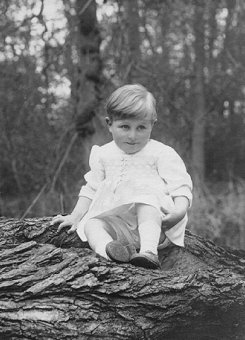
| Charles Marcus by
Compton Collier in 1924. |
|
The third baronet, Sir Charles
Marcus Mander, was born in the family’s home at Kilsall
Hall, near Tong, Shropshire on 22nd
September, 1921, the only child of the second baronet,
Sir Charles Arthur Mander.
Known to his family and friends as
Marcus, he spent part of his childhood in the Swiss Alps
while recovering from tuberculosis, and spoke excellent
French for the rest of his life!
His formal education began at
preparatory school at Wellesley House, followed by Eton
College, and later Trinity College, Cambridge, where he
read Natural Sciences. |
|
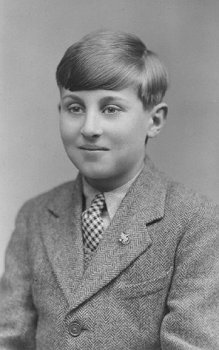
Family photo in 1929. |
|
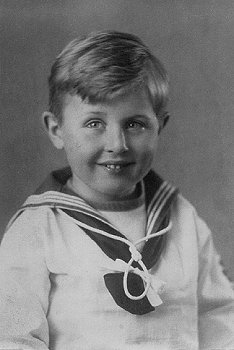
Charles at the age of five. |
|
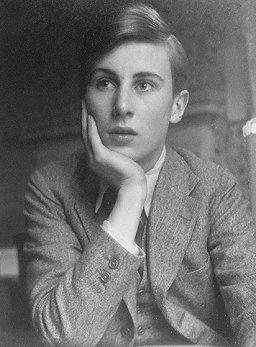
Self portrait at the age
of sixteen. |
|
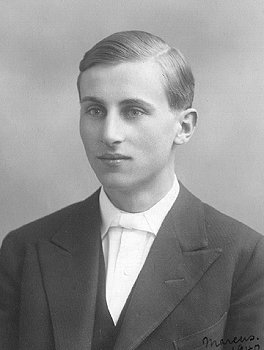
At Eton in 1940. |
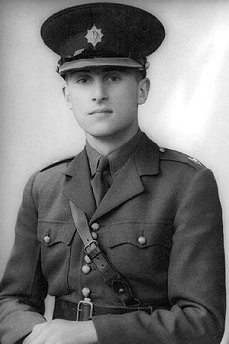
Serving in the Coldstream Guards
in
1943. |
|
|
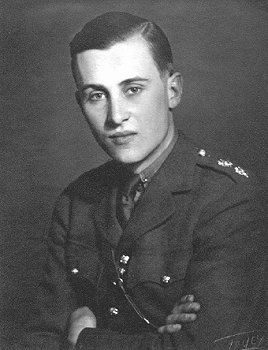
| Also
whilst serving in the Coldstream
Guards in 1943. |
|
| Commissioned to
the Coldstream Guards in 1942, he saw
action in North Africa and later at the
Salerno Landings in Italy with the Third
Battalion. On November 6th,
1943 during fierce fighting at
Calabritto, on the slopes on Monte
Camino, he was badly wounded and his
commanding officer died alongside him.
Charles recovered in North Africa and
later underwent plastic surgery in
London.
Family friend Sir Malcolm Sargent
described him as “a grand fellow,
freshly war scarred but undaunted”. He
continued his war service with the
Guards’ Armoured Division in the
Ardennes and finished the war as ADC to
Lieutenant General Robbie Stone,
supervising the destruction of U-boat
pens in Norway. |
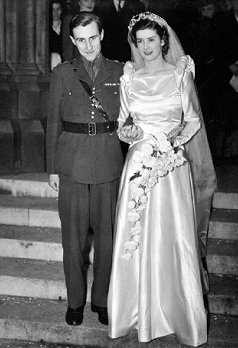
Charles and
Dolores wedding on 24th
November, 1945. |
Charles married
Dolores Brodermann of Hamburg in 1945 and their first
child Penelope Anne Mary was born in London in September
1946. In October of that year, within a week of
demobilisation, he joined the family firm of Mander
Brothers, the paint, varnish and printing ink
manufacturers. He soon became a director, his main
interest being in the company’s extensive range of
properties, including 57 shops and branches.
Charles’ eldest
son Nicholas, was born in March 1950 and followed by a
second son, Francis in December 1952. Charles converted
to Roman Catholicism after a business trip to Damascus.
This caused a major family row and resulted in him being
forced out of the family business. He served on many
public committees and was High Sheriff of Staffordshire
at the time of the Queen’s visit to Wolverhampton in
1962.
|
|
Mander Brothers
original site was in the centre of Wolverhampton,
surrounded by the town’s main shopping areas. In the
1960s, with the aid of Harold Samuel, the property
developer, and the Prudential, Charles championed a
scheme to redevelop the site into what is now
Wolverhampton’s premier shopping centre; the Mander
Centre. The project received outline planning approval
in January 1964 and work soon got underway. This was one
of the first purpose built shopping centres in the
country and won several civic awards. Before the
completion of the project in 1968, Charles turned his
attention to developing his own land and property in the
area. He sold the family’s house, The Mount, at
Tettenhall Wood to be converted into a hotel with 50
bedrooms. He then brought back farmland at Perton that
had been requisitioned as a wartime airfield. The 518
acres of land had been blighted for agricultural use by
the airfield and so in 1963 he applied for planning
permission for a 500 acre housing development. |
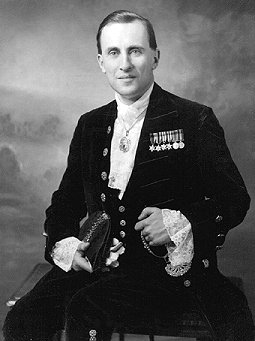
High Sheriff in 1963.
|
| Despite local opposition, during
which he became known as “the ogre of Wolverhampton”, he
finally obtained planning permission after an appeal in
1969. The Labour Housing Minister, Anthony Greenwood,
stated that the project was vital for the relief of
housing shortages in the West Midlands. In 1972 the site
was sold to a housing development firm for 5.5 million
pounds, and Perton, the new suburb of Wolverhampton,
quickly grew to house 11,500 people. |
|
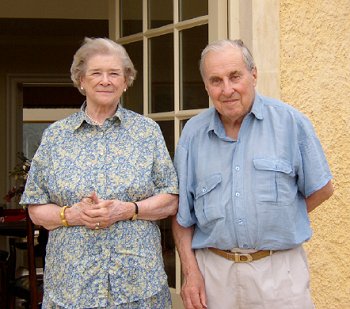
Charles and Dolores at Little
Barrow Farm in 2003. |
In the later part of his life,
Charles devoted much time to farming in rural
Gloucestershire and greatly enjoyed rural pursuits such
as shooting.
From 1977 to 1983 he was chairman
of Arlington Securities, a property company specialising
in science, business and retail parks.
The company’s projects included
the UK's first American style retail park, Aztec West,
Almondsbury, Bristol, and leisure developments in France
and Spain. |
| Things didn’t go as well with two
of his last ventures near the end of his career. He
founded London and Cambridge Investments, a company
specialising in retirement homes and offices in the
north. Things went very wrong due to the economic
recession and the property crash in the early 1990s.
Both Charles and his wife were Names at Lloyds and they
were hit hard by heavy underwriting losses in the early
1990s. |
| He was a friendly, charming,
family man whose passions included mathematics,
archaeology and music, especially Elgar. Charles
also supported Wolverhampton Wanderers and travelled
to Moscow with his Aunt Daisy in 1955 when they
played Spartak and Dynamo. During the visit he had
the distinction of scoring three goals in an
unofficial supporters’ match.
Charles and Dolores celebrated their diamond wedding
anniversary in November 2005. Charles died suddenly
at Newport, Isle of Wight, on 9th
August, 2006, surrounded by his family. He had
visited the Isle of Wight for more than 80 years and
long maintained a holiday home there. At 84 years of
age Charles was proud to be the oldest male Mander
to have lived since records began in 1290.
|
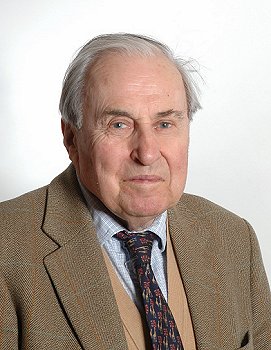
A recent photo by Francis
Mander. |
| Dolores survives him with his
three children, 10 grandchildren and 7 great
grandchildren, the youngest of whom was born just
two days before he died. He is succeeded in the
baronetcy by Charles Nicholas, of Owlpen Manor,
Gloucestershire.
|
I would like to thank Sir Charles Nicholas Mander for his help in
producing this biography and supplying the photographs.
|
 |
|
Return to the
previous page |
|